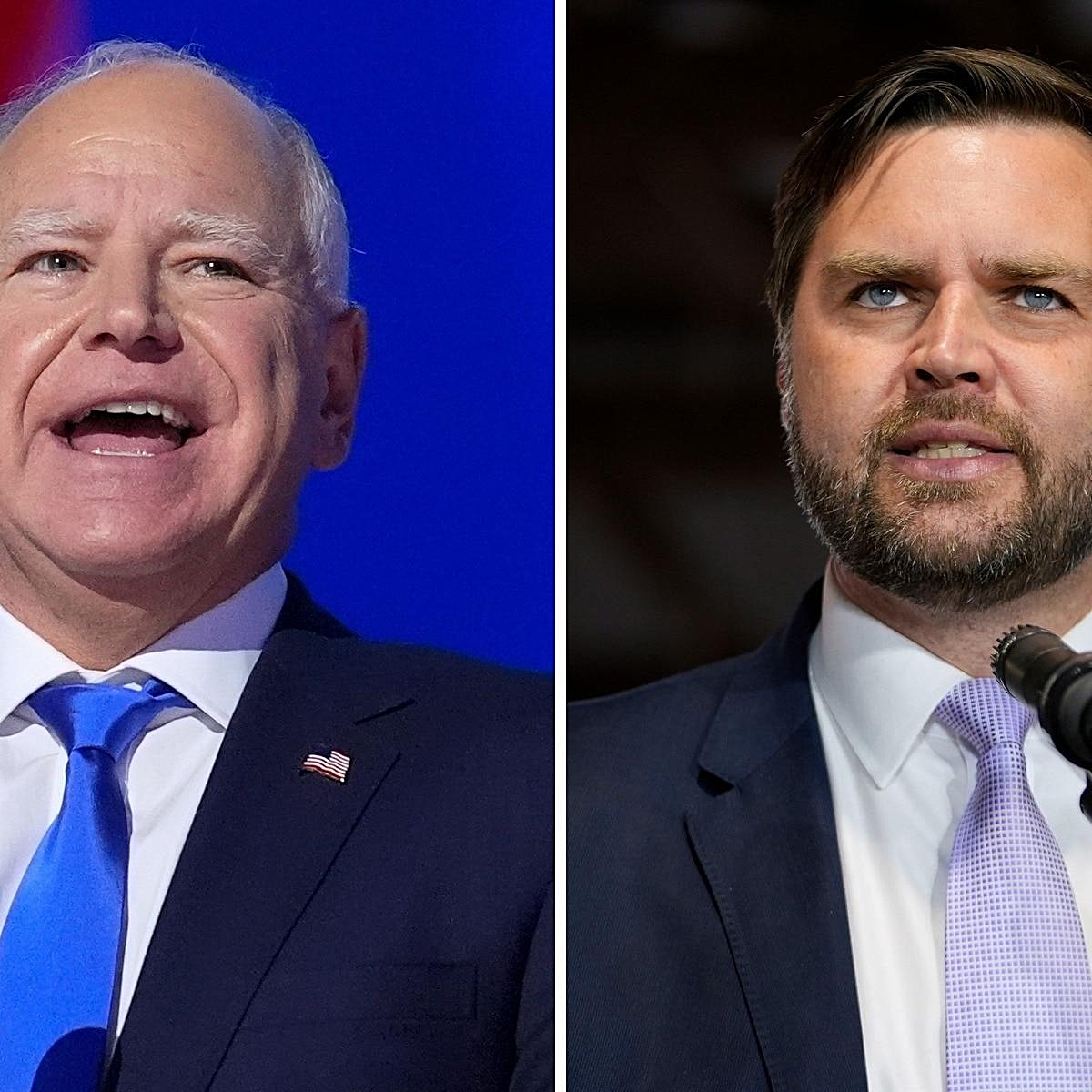The vice presidential nominees, Sen. JD Vance (R-Ohio) and Democrat Minnesota Gov. Tim Walz, are scheduled to engage in a debate on CBS News on October 1st. As the election day looms closer, voters may question the significance of these debates in influencing the outcome of the election.
This particular debate will be the sole face-off between the two candidates this year, which is common for vice presidential nominees. The candidates, Vance and Walz, outline differing visions for the country. Vance represents the America-first agenda of former President Donald Trump, while Walz highlights the Biden-Harris administration’s achievements and his progressive policies as governor.
David Schultz, a political science professor at Hamline University, observes that both Trump and Vice President Kamala Harris strategically selected their running mates, Vance and Walz, to appeal to their respective party bases. However, neither candidate hails from critical swing states. Vance enjoys strong support among Trump supporters, while Walz was endorsed by numerous progressive leaders in the Democratic Party before joining the ticket.
At this stage, both campaigns are primarily targeting their base rather than appealing to moderates. Nevertheless, this debate provides an opportunity for each candidate to make a compelling case to undecided voters in one of the most extraordinary elections in recent history. The election has already witnessed a significant upheaval within the Democratic Party following President Joe Biden’s troubled June debate against Trump.
However, historically, vice presidential debates have had little impact on polling outcomes. The viewership for these matchups tends to be lower compared to the presidential debates. Aaron Dusso, a political science professor at Indiana University-Indianapolis, notes that only 57.9 million viewers watched the debate between Harris and Vice President Mike Pence, a decline from the 73.1 million viewers for the first presidential showdown in 2016.
Nonetheless, debates allow candidates to articulate their ideas and policies to audiences who may not be familiar with them, particularly in the case of vice presidential nominees. Schultz remarks that, except for Sarah Palin, there is no significant evidence to suggest that recent vice presidents have significantly influenced the presidential race. Dusso adds that Senator John McCain chose Palin as a “game-changer” due to his already lagging campaign and the perceived negative impact of the economy under President George W. Bush.
Although Palin received heavy media attention and faced criticism regarding her intelligence after the debate with Biden, her performance did not alter the overall trajectory of the campaign. However, Schultz highlights an exception in 1988 when Democratic nominee Michael Dukakis’ running mate, Senator Lloyd Bentsen, famously delivered a sharp retort to then-Vice President Dan Quayle during a debate.
While such moments generate attention during vice presidential debates, they generally have limited influence on the ultimate outcome of the election. In terms of the impending debate between Vance and Walz, both candidates must focus on avoiding mistakes and presenting their respective cases for their presidential candidates. The key for both candidates is to show competence across a range of topics and quickly establish trust with voters in order to address the issues that resonate with them the most.
For Walz, this means emphasizing access to abortion, healthcare, education, and addressing Project 2025. On the other hand, Vance should focus on policy areas such as the border, the economy, and crime, despite the current positive trends in those areas.
Discover more from Tension News
Subscribe to get the latest posts sent to your email.

